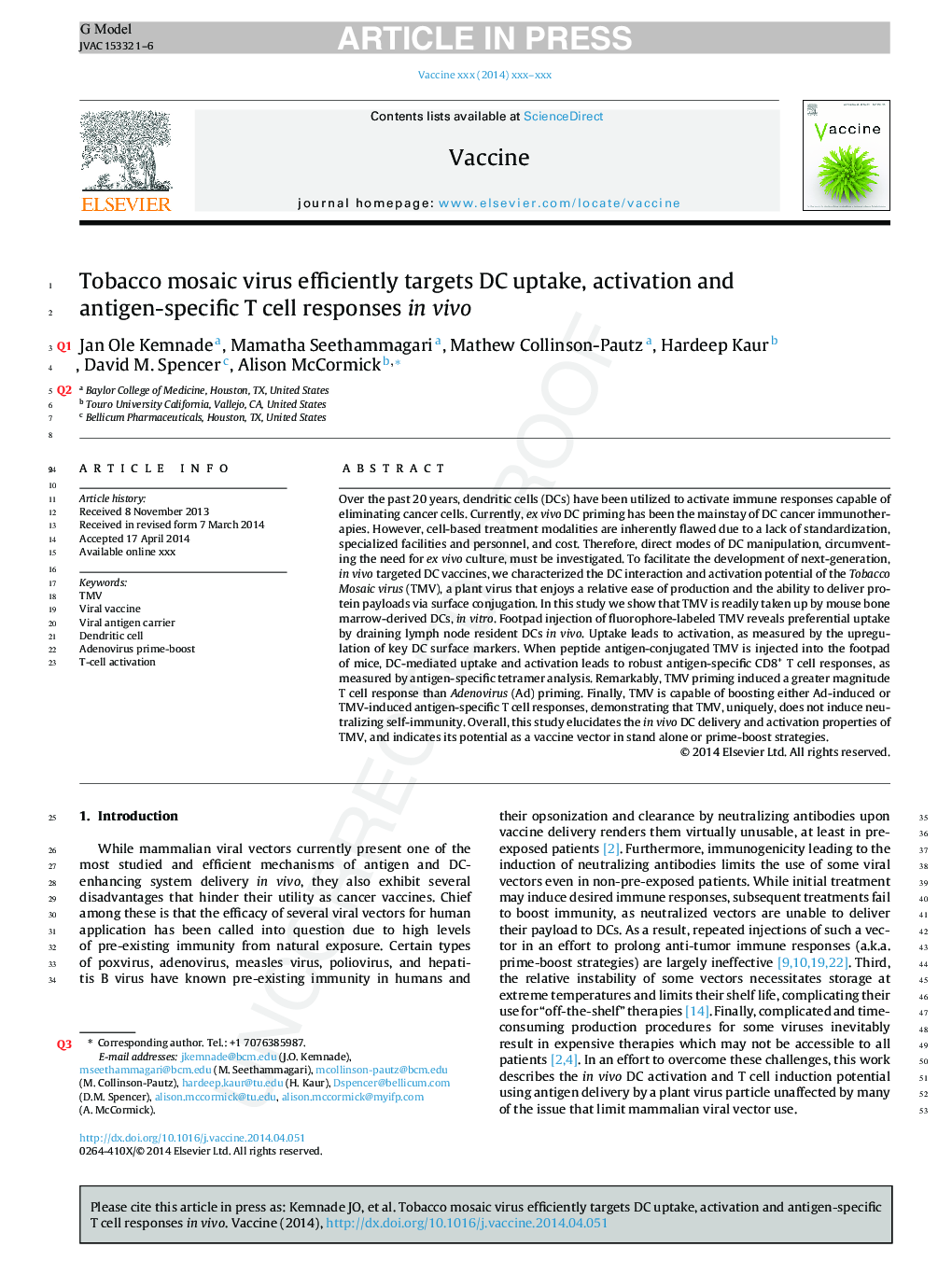| Article ID | Journal | Published Year | Pages | File Type |
|---|---|---|---|---|
| 10964748 | Vaccine | 2014 | 6 Pages |
Abstract
Over the past 20 years, dendritic cells (DCs) have been utilized to activate immune responses capable of eliminating cancer cells. Currently, ex vivo DC priming has been the mainstay of DC cancer immunotherapies. However, cell-based treatment modalities are inherently flawed due to a lack of standardization, specialized facilities and personnel, and cost. Therefore, direct modes of DC manipulation, circumventing the need for ex vivo culture, must be investigated. To facilitate the development of next-generation, in vivo targeted DC vaccines, we characterized the DC interaction and activation potential of the Tobacco Mosaic virus (TMV), a plant virus that enjoys a relative ease of production and the ability to deliver protein payloads via surface conjugation. In this study we show that TMV is readily taken up by mouse bone marrow-derived DCs, in vitro. Footpad injection of fluorophore-labeled TMV reveals preferential uptake by draining lymph node resident DCs in vivo. Uptake leads to activation, as measured by the upregulation of key DC surface markers. When peptide antigen-conjugated TMV is injected into the footpad of mice, DC-mediated uptake and activation leads to robust antigen-specific CD8+ T cell responses, as measured by antigen-specific tetramer analysis. Remarkably, TMV priming induced a greater magnitude T cell response than Adenovirus (Ad) priming. Finally, TMV is capable of boosting either Ad-induced or TMV-induced antigen-specific T cell responses, demonstrating that TMV, uniquely, does not induce neutralizing self-immunity. Overall, this study elucidates the in vivo DC delivery and activation properties of TMV and indicates its potential as a vaccine vector in stand alone or prime-boost strategies.
Related Topics
Life Sciences
Immunology and Microbiology
Immunology
Authors
Jan Ole Kemnade, Mamatha Seethammagari, Mathew Collinson-Pautz, Hardeep Kaur, David M. Spencer, Alison A. McCormick,
